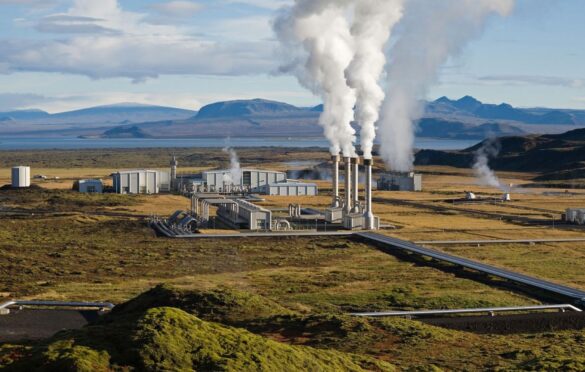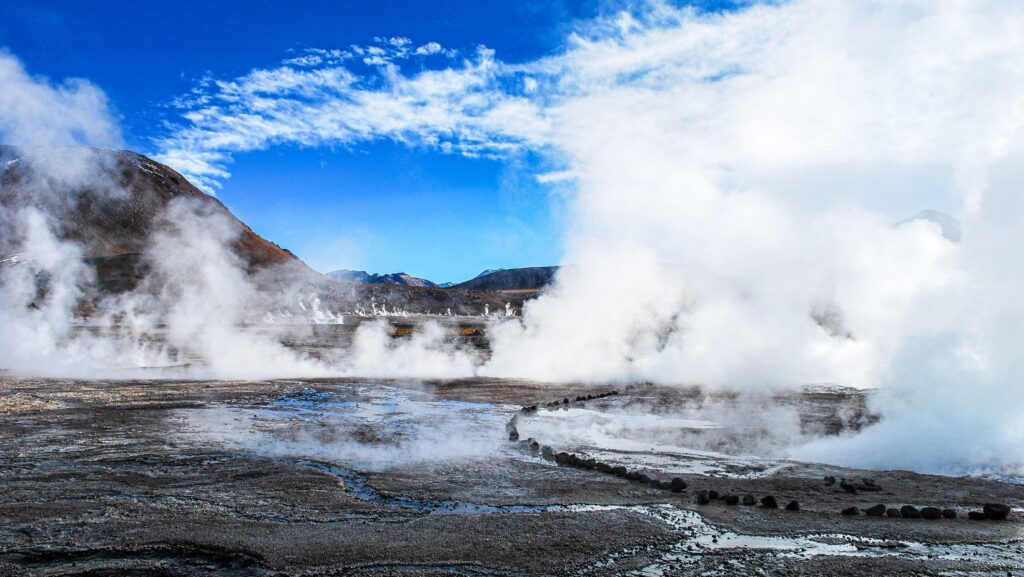Geothermal Energy: Exploring the Earth’s Heat for Sustainable Power

Geothermal energy is a type of renewable energy that utilizes the Earth’s natural heat to generate electricity and provide heating and cooling for homes and buildings. Unlike fossil fuels, geothermal energy is a clean and sustainable source of power that doesn’t emit harmful greenhouse gases.
What is Geothermal Energy?
Geothermal energy is derived from the heat of the Earth’s interior. This heat is generated by the decay of radioactive elements, as well as the residual heat from the planet’s formation. The heat is transferred to the surface through conduction, convection, and radiation, creating hotspots and geothermal reservoirs.

How is Geothermal Energy Used?
Geothermal energy can be used for a variety of purposes, including:
Electricity Generation: Geothermal power plants use steam or hot water from underground to power turbines and generate electricity. This process is highly efficient and produces zero emissions.
Heating and Cooling: Geothermal heat pumps use the stable temperature of the ground to provide heating and cooling for homes and buildings. This reduces energy consumption and can save homeowners money on their energy bills.
Industrial Applications: Geothermal energy can be used for industrial applications such as food processing, mining, and greenhouse farming. This reduces the reliance on fossil fuels and promotes sustainable practices.
Benefits of Geothermal Energy
Geothermal energy offers a range of benefits, including:
- Renewable and Sustainable: Geothermal energy is a renewable and sustainable source of power that doesn’t deplete natural resources or emit harmful pollutants.
- Cost-Effective: Geothermal energy can provide significant cost savings over time by reducing energy consumption and eliminating the need for fossil fuels.
- Low Maintenance: Geothermal systems have a long lifespan and require minimal maintenance, making them a reliable and low-cost option for heating and cooling.
- Reduced Carbon Footprint: Geothermal energy produces zero emissions, helping to reduce the carbon footprint and combat climate change.
Challenges of Geothermal Energy
While geothermal energy has many benefits, there are also challenges associated with its use. These include:
- High Initial Costs: Installing a geothermal system can be expensive, requiring a significant upfront investment.
- Limited Availability: Geothermal energy is only available in certain areas, such as regions with high geothermal activity or hotspots.
- Environmental Impact: Geothermal energy can have a minor impact on the environment, such as the potential for subsidence or land-use changes.
Conclusion
Geothermal energy is a promising source of clean and sustainable power that can be used for a variety of applications. While there are challenges associated with its use, the benefits outweigh the costs, making it an attractive option for reducing the reliance on fossil fuels and promoting sustainable practices.